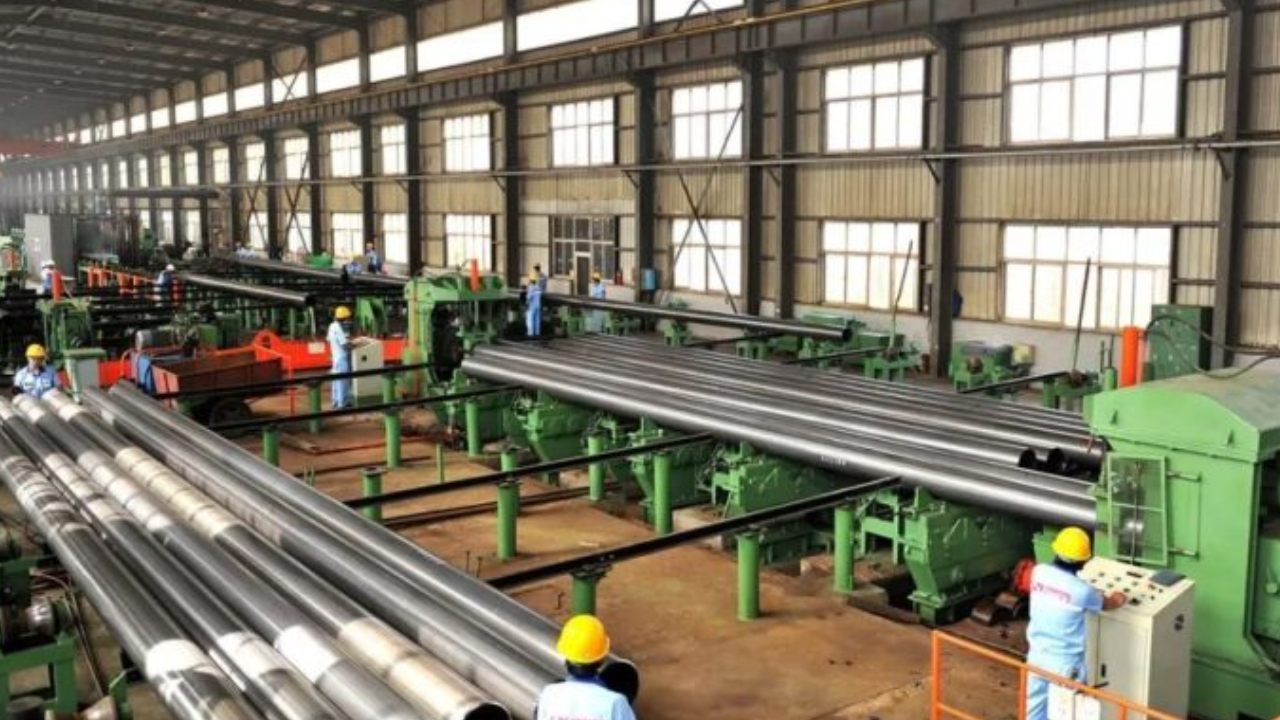Steel pipes are important for their power, strength, and flexibility in multiple industries. They’re critical in construction, oil and fuel, water distribution, and manufacturing, imparting dependable transportation for fluids and gasses beneath excessive strain.
Their corrosion resistance and ability to face as much as harsh environments make them integral for infrastructure improvement and commercial enterprise applications. Choosing the proper steel pipe for a specific application includes cautious attention to different factors to make certain it meets the requirements for usual overall performance, safety, and cost-effectiveness.
Considerable Factors for Choosing Steel Pipe
Here are some key factors to consider while selecting a steel pipe:
Material Composition and Grade
Material composition is vital as it influences the pipe’s houses consisting of electricity, durability, and resistance to environmental elements. Carbon steel offers a great balance of energy and cost, suitable for structural applications. Chrome steel gives brilliant corrosion resistance and is ideal for packages in harsh environments, including chemical processing or marine use. Selecting the proper material ensures the pipe can resist the difficult situations it’ll be exposed to, consisting of chemical publicity, temperature fluctuations, or mechanical pressure.
Diameter and Wall Thickness
The diameter and wall thickness of a steel pipe are vital for its functionality to cope with pressure and drift requirements. Outer Diameter (OD) determines the pipe’s capacity and the way it will match with different components in a machine. It’s vital for applications involving fluid or fuel shipping. Wall Thickness (WT) affects the pipe’s strength and capability to resist internal and outside pressures. Choosing the ideal dimensions ensures that the pipe can deal with the operational pressures and flows without failure.
Manufacturing Method
The manufacturing technique impacts the pipe’s houses, first-rate, and price. Seamless pipes are made utilizing extruding a stable billet, those pipes have no seams and provide better power and pressure resistance. Welded pipes are produced by way of forming and welding a steel plate or strip. Welded pipes are usually greater cost-effective and utilized in structural applications or in which moderate pressures are concerned. Understanding the manufacturing technique helps in deciding on a pipe that meets the unique mechanical and structural requirements of the application.
Corrosion Resistance
Corrosion resistance is vital for pipes exposed to corrosive environments or transporting corrosive materials. Stainless steel or coated pipes like galvanized metal are used to save you from rust and corrosion. Several coatings (e.g., epoxy, polyurethane) can be achieved to decorate corrosion resistance and lengthen the pipe’s lifespan. Thinking about corrosion resistance ensures the durability of the pipe and decreases protection costs and capacity failure risks.
Application-Specific Requirements
Exceptional applications have precise demands, so the pipe has to be ideal for the specific situations. High-temperature applications, like steam lines, require pipes that can resist thermal expansion and contraction. Applications concerning excessive-stress fluids or gasses want pipes with appropriate stress ratings to prevent ruptures. Matching the pipe’s residences to the application guarantees it may be carried out reliably and thoroughly under the given running situations.
Compliance with Standards and Rules
Compliance with applicable requirements and regulations is critical for safety, performance, and prison reasons. Pipes should meet specs like ASTM, API, or ASME, which dictate material homes, dimensions, and trying out tactics. Making sure the pipe meets nearby and international policies is important, especially for applications in healthcare, food processing, or environmental protection. Adhering to requirements ensures the pipe is suitable for its intended use and complies with felony and industry-unique necessities, averting capability problems with first-rate safety.
Ending Remarks
Steel pipes are crucial for the reliable transportation of fluids and glasses, which underpins essential infrastructure inside the fields of utilities, strength, and creation. They’re vital for structural packages, oil and gas pipelines, and secure water distribution due to their exquisite electricity, strain resistance, and ability to resist corrosion. Their capacity to withstand harsh occasions guarantees the effectiveness and protection of important structures.









